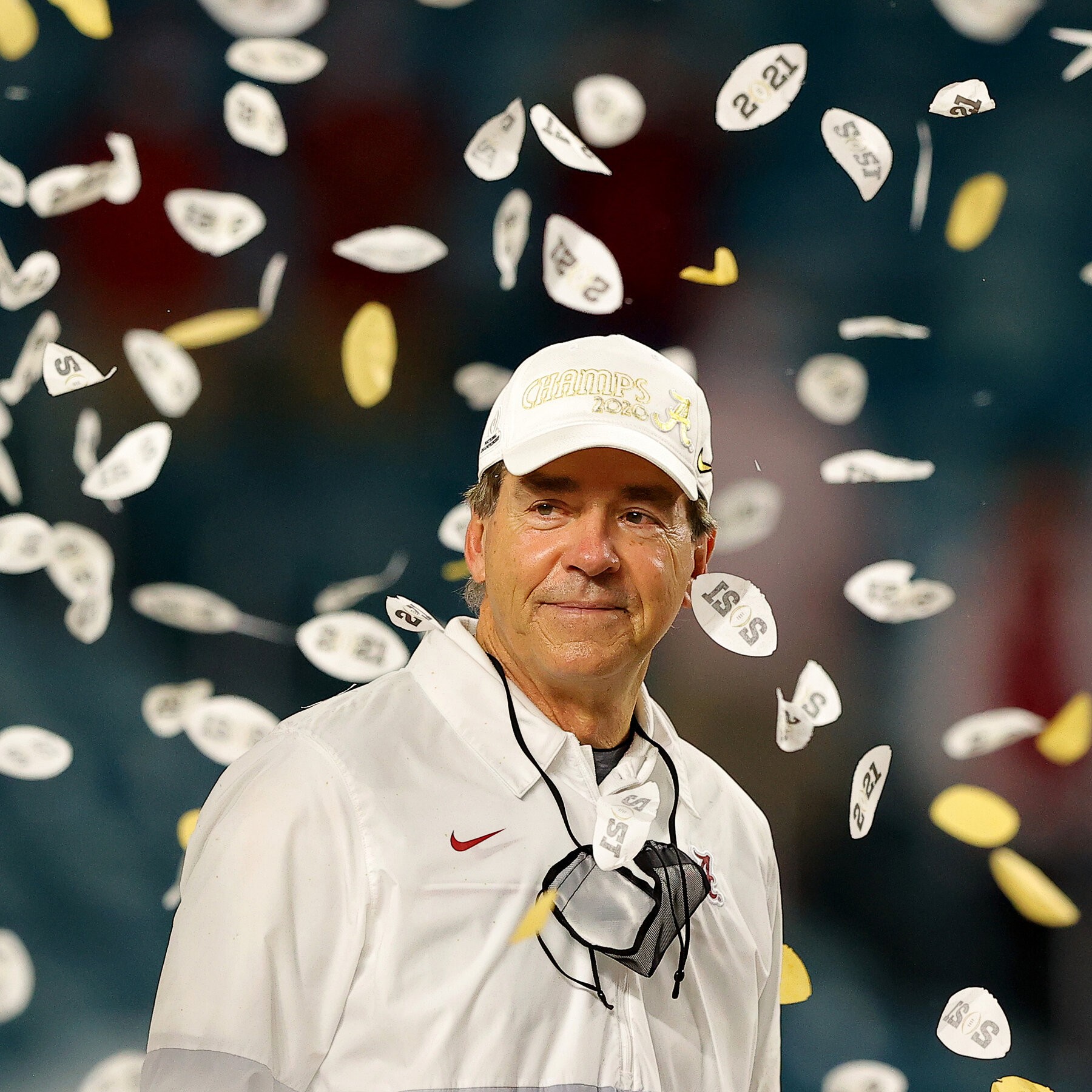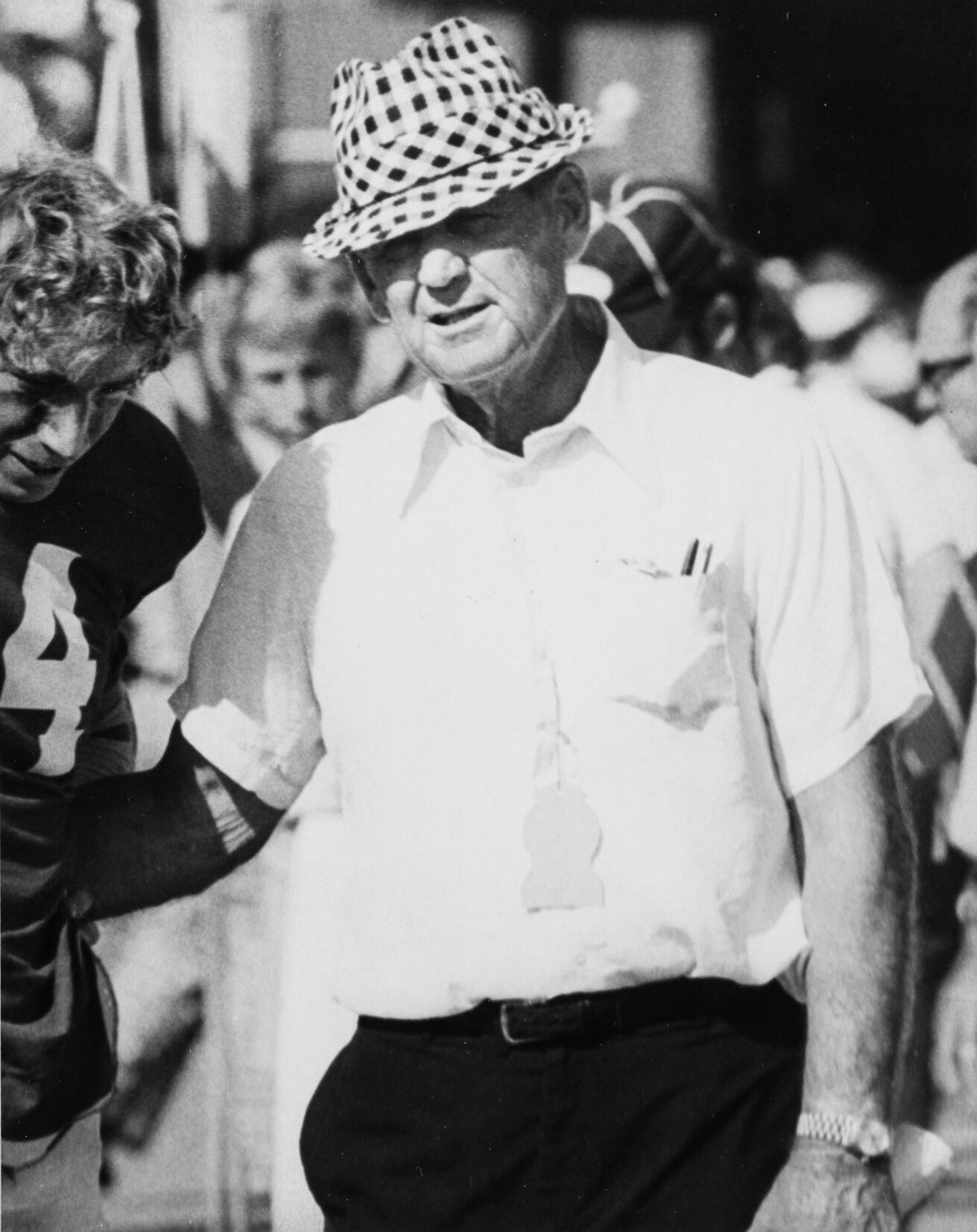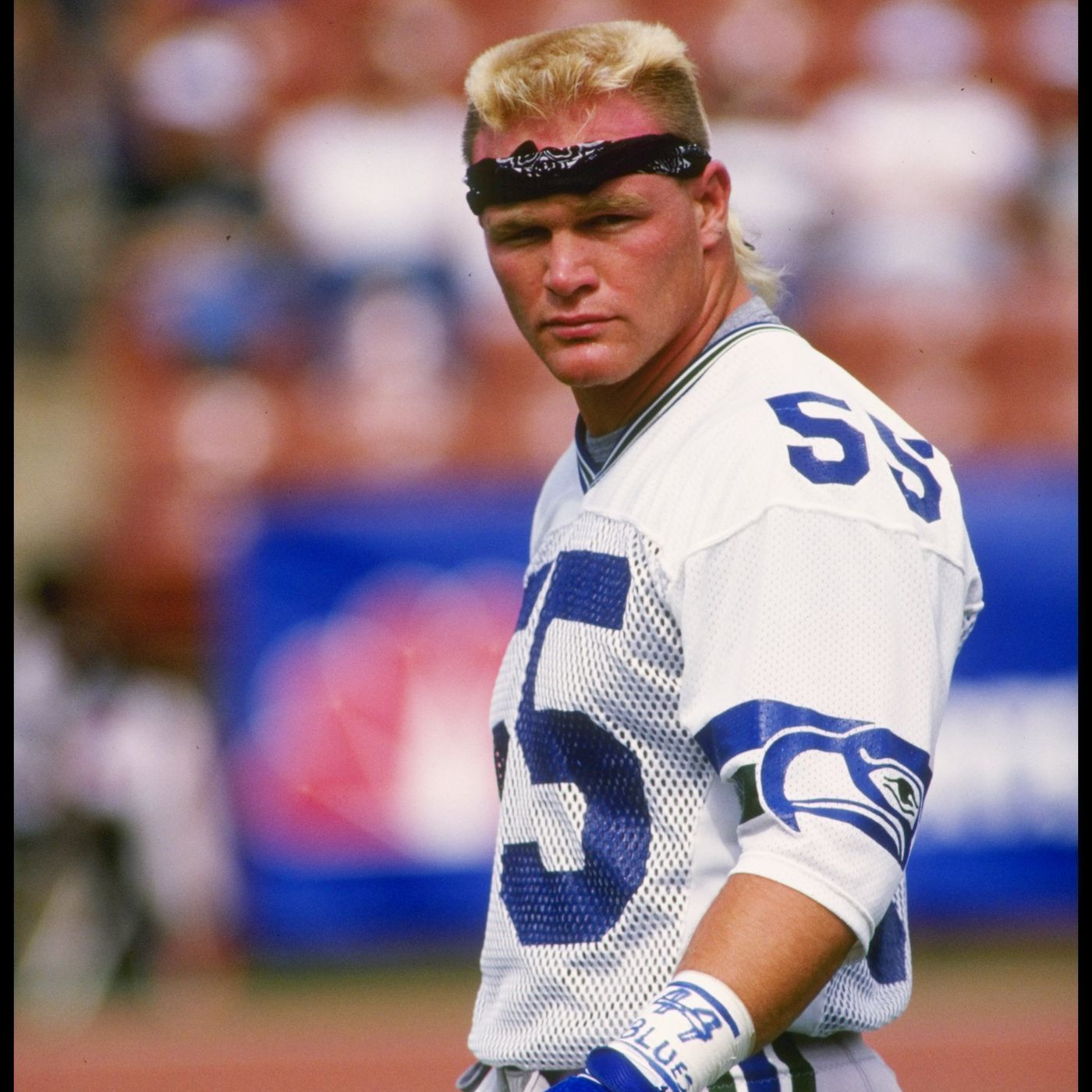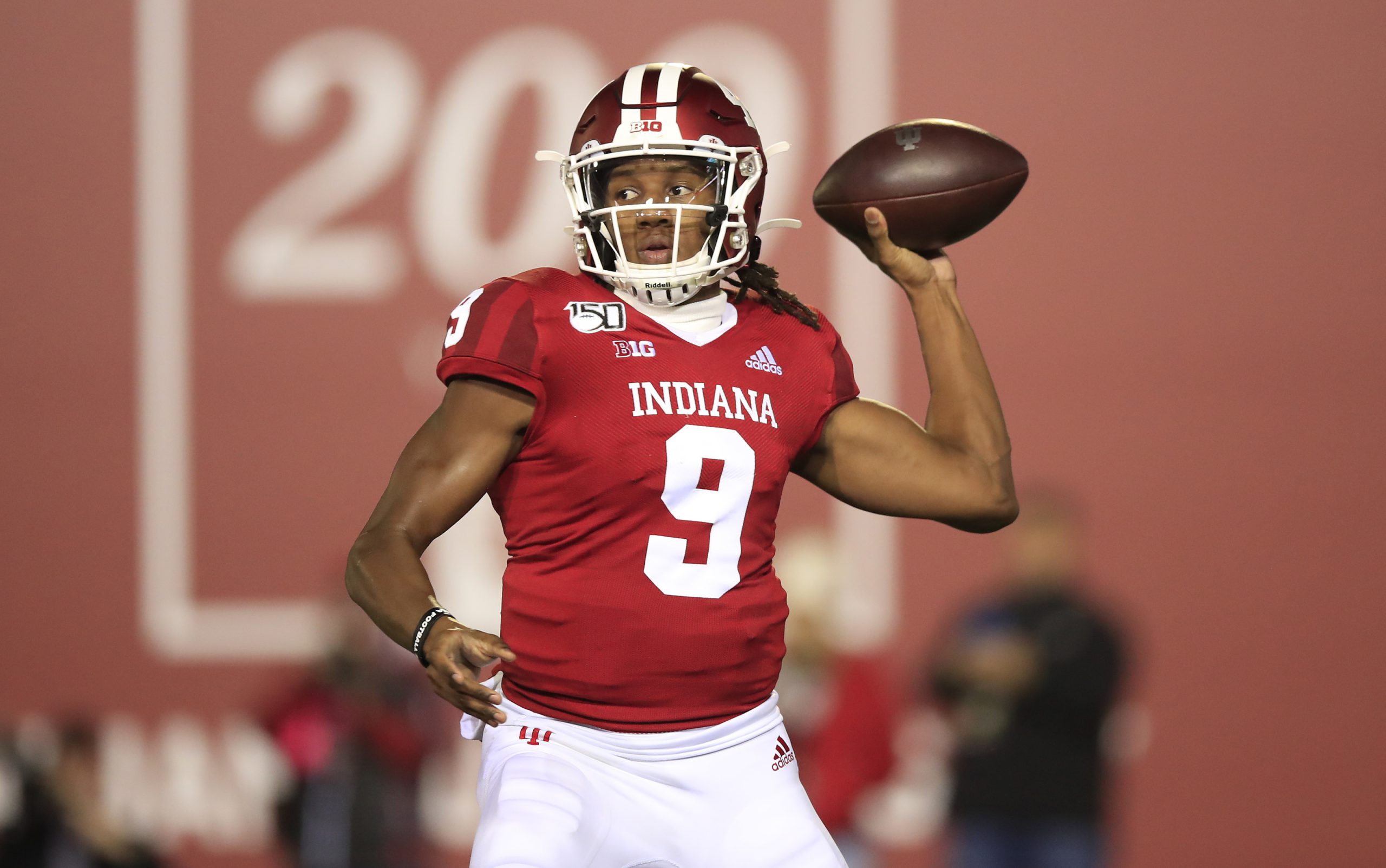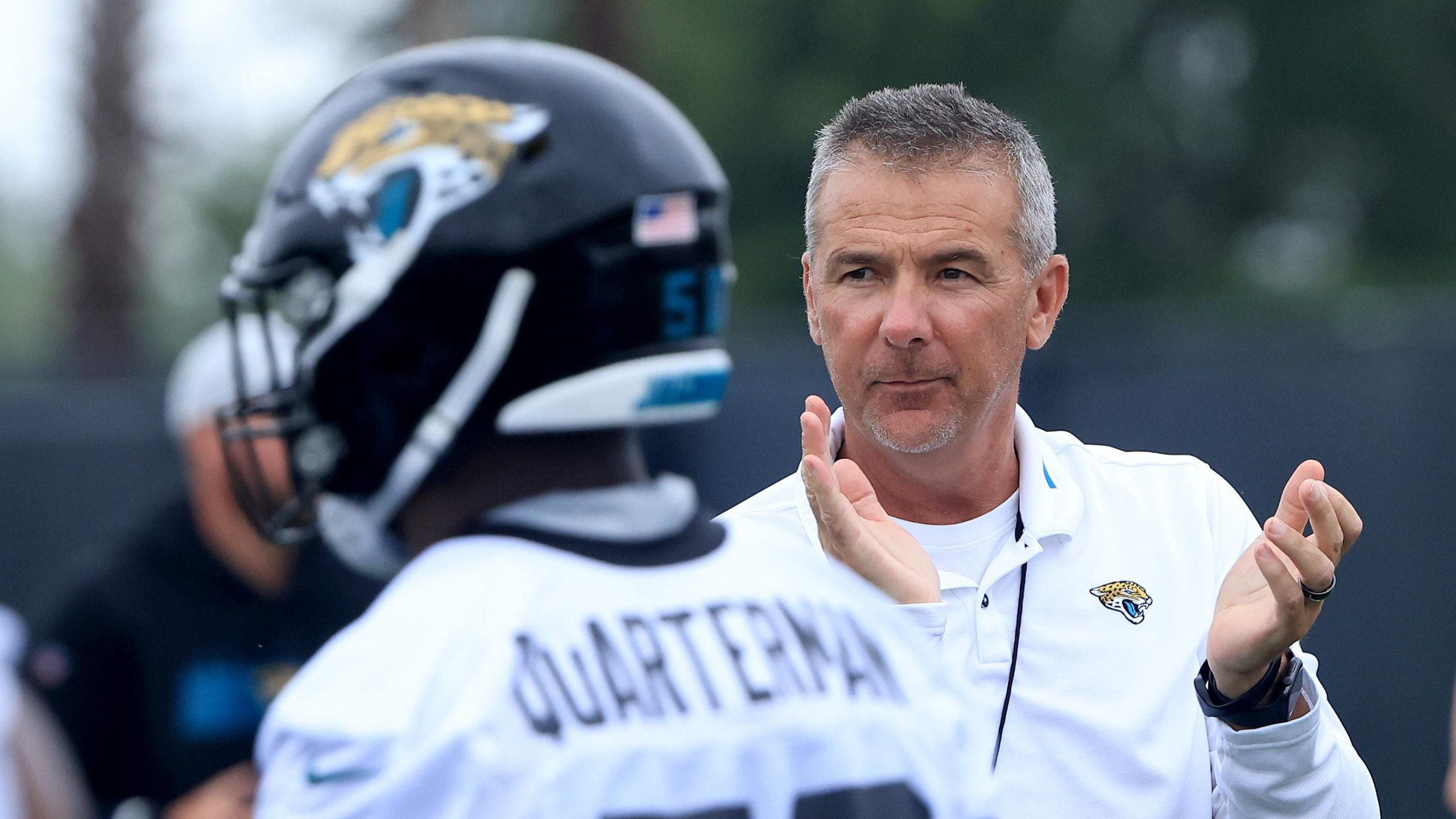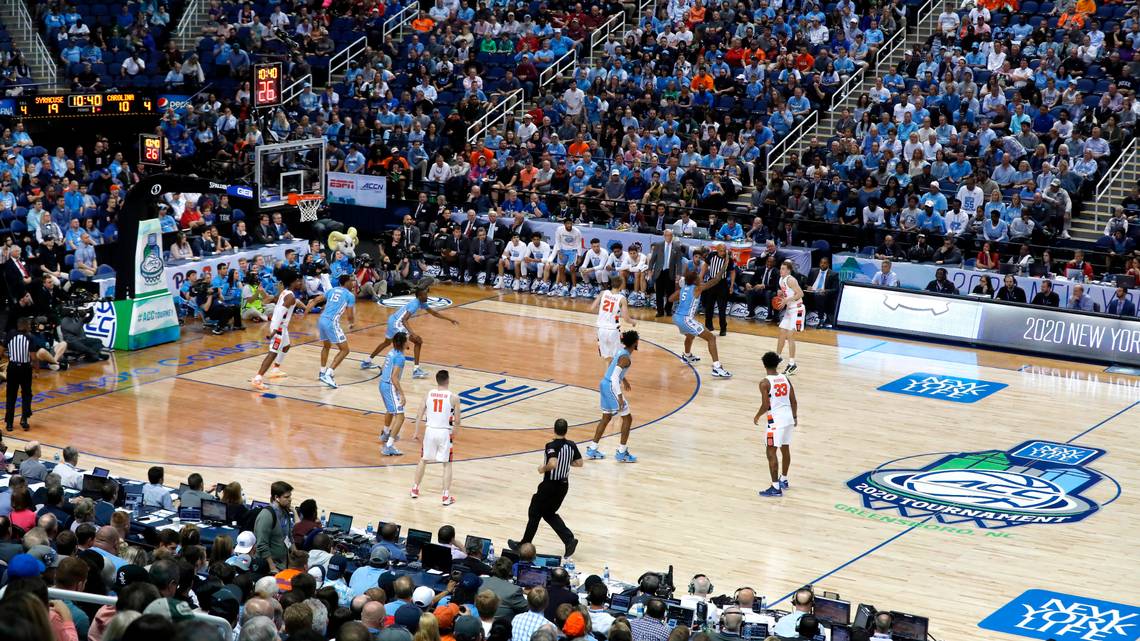Nick Saban is the greatest coach in the history of big-time college football.
The first coach in history to win a national championship with two different schools, Saban has won a dozen coach of the year honors.
He has won six national titles [five at Alabama, one with LSU], tying him with the legendary Paul “Bear” Bryant for most of all time. Saban has won the SEC Western Division nine times and has gone on to capture eight conference crowns. He and Bryant are the only coaches to win an SEC title at two different schools.
Saban possesses a pathological drive that makes him the most successful coach in America and, simultaneously, one of the most polarizing. Penn State’s James Franklin, has never won a conference title nor beaten Saban, referred to him as “Nicky Satan.” Others have described Saban as “the devil himself.”
Opposing coaches, who rarely beat him on the field, bash Nick Saban unmercifully – behind his back.
In the most competitive era college football has ever seen, Nick Saban’s success is unparalleled. In 12 years at Alabama, he has won five national championships. In each of the past four seasons, the Crimson Tide have lost only one game. ‘Bama has appeared in every title game of the CFP era, winning twice. Playing in the SEC – the toughest football conference in the land – Saban has guided Alabama to six league crowns [after losing the SEC to LSU in 2011, ‘Bama came back to throttle the Tigers in the BCS title game 21-0].
Coach Saban has mentored 35 All-Americans. He has produced two Heisman Trophy winners, while three others have been finalists. Since 2003, eight Saban-coached players have been finalists for the Outland Trophy as the best lineman in America. Five have won the award. Following each season, college football recognizes the game’s top position players. From the Biletnikoff to the Thorpe Award, from the Butkus to the Walter Camp, over a dozen awards are handed out. Since 2001, 22 of Saban’s athletes have been honored as the best at their position in the FBS. Of those, 19 have come during his tenure at ‘Bama.
Under Saban, Alabama has been the premier program of the 21st century. Beginning in 2008, the Tide have been ranked #1 at one point in every season and have finished in the top spot five times. Since 2011, Saban has gone 103-10, compiling an NCAA-best .902 winning percentage. In that same period, Dabo Swinney – who many believe has built Clemson into the top program in the land – has gone 97-15 [.845].
Nick Saban has the best winning percentage of any coach in LSU history. He also has the highest winning percentage in the storied history of Alabama – including Bear Bryant.
A superb recruiter, Saban has sent 77 players to the NFL since 2009. At least one has gone in the first round of each of those drafts. In 2018, a dozen ‘Bama players were drafted, including four first-rounders. Remaining King of the Hill has never been harder in college football. With higher stakes than ever before, Saban is forced to play a game of musical chairs each off-season. During his time in Tuscaloosa, ‘Bama’s grand master has had seven offensive coordinators.
Players leave early for the NFL draft, and ‘Bama assistants — who are the most coveted in the country – turnover annually while taking head jobs elsewhere. Nothing raises a candidate’s stock quite like having served on Saban’s staff. Competing in the College Football Playoff with a lame-duck coordinator has become an annual tradition at ‘Bama. The Tide have entered the postseason with coordinators who have already accepted another job in each year of the CFP.
His coaching tree includes Jimbo Fisher, Kirby Smart, Mark Dantonio, Adam Gase and Jason Garrett, among others. Saban disciples dot the landscape of college football. His proteges currently hold head coaching positions at Georgia, Oregon, Maryland, Colorado, Tennessee and South Carolina.
Saban inherited a once-proud Alabama program that was in disarray [the Tide went 6-6 in 2004 including losing to Minnesota in the Music City Bowl]. A devout Catholic who rarely misses Mass, Saban’s guiding vision is something he calls “the process,” a philosophy that emphasizes preparation and hard work. Barrett Jones, an Outland Trophy winner who played on three national championship teams at Alabama explains the process this way, “It’s not about what you do, it’s about how you do it.”
Saban builds defense-oriented teams stacked with future NFL players. Behind massive and talented offensive lines, his squads feature a ball-control offense and a nearly unstoppable running game. In his nearly two decades of coaching in the SEC, Saban’s trademark has been controlling the line of scrimmage on both sides of the ball, limiting turnovers, and dominating time of possession.
Born on Halloween, 1951, Nicholas Lou Saban Jr. was raised in the hard-bitten coal mining town of Fairmont, West Virginia, 90 miles south of Pittsburgh. At Monongah High School, he was All-State in both baseball and basketball. But football was his passion. A 5”6” quarterback, Saban led Monongah to the 1968 West Virginia state title. A perfectionist, he knew what everybody did on every play. “If we didn’t do a play right,” said teammate Kerry Marbury, “we’d run it until it got dark, the same play over and over until we got it right.”
Coaching in an era before scholarship limits, Bear Bryant would land Auburn’s best recruit and put him on the bench just so he wouldn’t play against the Tide.
In 1969, Saban accepted a scholarship to Kent State. A solid defensive back, he teamed with future Pittsburgh Steelers hall of famer Jack Lambert to lead the Golden Flashes to a 1972 Tangerine Bowl victory. After graduating in 1973, Saban, who met Terry Constable in seventh grade and married her at 21, planned on becoming a car salesman. When Don James invited him to join the Kent State staff as a graduate assistant, Saban’s future was cemented. Within a decade, he would change the landscape of college football like no one else before him.
Saban worked up the coaching ladder with molten intensity. A defensive specialist, he was an assistant at Syracuse, West Virginia, Ohio State and Michigan State. Saban got his first head coaching job in 1990, at the University of Toledo. While at Toledo, he turned down an application from 23-year-old Urban Meyer, who was looking for a spot anywhere on Saban’s staff. After guiding the Rockets to a 9-2 record and a share of the MAC title, Saban resigned to become defensive coordinator of the Cleveland Browns under head coach Bill Belichick.
The ultra-driven Saban called his four seasons in Cleveland the “worst of my life.” In 1995, he returned to the college game, accepting the head coaching job at Michigan State. In five seasons in East Lansing, Saban led the Spartans to four bowl games. His 1999 team beat Notre Dame, Ohio State, Penn State and Michigan. Their ten wins were the most in 34 years. After beating Florida in the Citrus Bowl, the Spartans finished ninth in the nation, their highest ranking since 1966.
After going 7-6 in his first season in Tuscaloosa, Saban has only lost more than two games in a season once. In 2010, the Tide went 10-3 and ended the year by dismantling Michigan State, 49-7, in the Capital One Bowl.
In November 1999, Saban became the 31st head football coach in LSU history. In his second season in Baton Rouge, he guided the Tigers to their first SEC title since 1986 and first Sugar Bowl victory in more than three decades. LSU won another SEC title in 2003 and capped the season by beating Oklahoma in the BCS national championship game. It was LSU’s first national title since Billy Cannon helped the Tigers beat Clemson in the 1958 Sugar Bowl.
After guiding LSU to five straight bowl games and compiling the best winning percentage [.750] in school history, Saban left to become head coach of the Miami Dolphins. His style didn’t translate to the pro level. After going 15-17 in two seasons in Miami, Saban inked an eight-year, $32 million deal to take over for Mike Shula at Alabama in January 2007. It made the 55-year-old Saban one of the highest-paid football coaches in America, college or pro.
Nick Saban was college football’s highest-paid coach in 2017, earning $11,132,000. In July 2018, he signed a contract extension with the University of Alabama that will bump his salary by $400,000 each year until the agreement expires in 2025.

